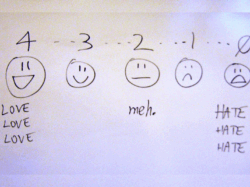Rebekah Wanic is an assistant professor at the University of San Diego.

Once upon a time, people dressed sharply, minded their manners, and worried about how their behavior reflected on their families and communities. Sure, this was partly driven by vanity, but it was also useful. Such prosocial vanity is maligned by modern standards as shallow, but it was not shallow; it served a purpose: it kept people […]
Read More
As universities attempt to rebrand their “diversity, equity, and inclusion” (DEI) programs and offices, many have embraced the term “inclusive excellence,” promoting it as a strategy to recognize and cultivate both individual and institutional success. Inclusive excellence is framed as a method that values multiple perspectives to enhance overall performance. But in practice, it is […]
Read More
In recent years, instructors across college campuses have observed a steady decline in students’ adherence to the behavioral norms that once defined the academic environment. Expectations surrounding punctuality, appropriate dress, timely submission of work, and respectful communication have eroded, replaced by a culture in which such standards are often seen as optional, negotiable, or even […]
Read More
Under the guise of student-centered priorities, institutions of higher education have relied on student evaluations of teaching (SETs) as a core component of faculty assessment. These evaluations are typically presented as a means of capturing student feedback to improve instruction and measure teaching effectiveness. However, a growing body of empirical research has revealed that SETs […]
Read More
In an era where comfort and personal expression dominate campus dress, the idea of dressing up for class may seem outdated. Hoodies, sweats, yoga pants, and slippers are the unofficial winter attire, traded in for midriffs, booty shorts, and flip flops when the weather heats up. PJs for final exams is one thing, but wearing […]
Read More
Grade inflation—higher grades awarded without a commensurate increase in learning—is a documented problem in higher education. It is fueled by a consumerist educational environment, the desire to please students and parents, the connection of student satisfaction surveys (e.g., “course evaluations”) with employment and promotion, and coddlers who view any source of student stress as problematic. Combined with […]
Read More
Many, if not most, students attend university intending to enter the workforce upon graduation. But today’s climate of student-centered policies and social justice rhetoric often does the opposite. While much attention has been given to the harms of “diversity, equity, and inclusion” (DEI) initiatives, the rapid expansion of academic accommodations remains underexamined. Originally intended to […]
Read More
In recent years, activism has become increasingly visible in academia, often permeating classrooms, faculty hiring practices, and research agendas. This trend has generated both support and concern across university campuses. While, in some cases, activism can be a powerful force for social change, its growing presence in academic settings has raised important questions about its […]
Read More
In modern higher education, students hold unprecedented power over faculty and university governance. This influence, shaped by the combined forces of cancel culture, student consumerism, and administrative bloat, has shifted the traditional power dynamics, leading to significant consequences for how universities function and how faculty engage with students. Although student empowerment can sometimes drive positive change, […]
Read More